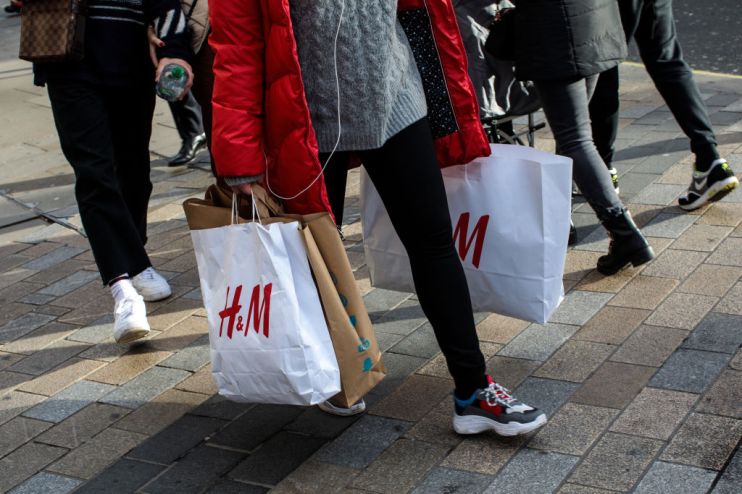It’s a myth to say sustainable and ethical clothing can’t be affordable

Forced labour. Environmental hazard. A race to the bottom. It is no secret that the fashion industry is broken.
Clothes are the second highest products at risk of slavery and produce around 10 per cent of global greenhouse gas emissions – that’s more than planes.
With labour supply across the global supply chain exceeding demand, fashion brands have been able to drive prices down by forcing factories to compete with one another for contracts. Factories have correspondingly cut costs by driving down the wages of workers or demanding longer hours. Sometimes the work is outsourced to sweatshops.
Factories can also cut corners by avoiding proper due diligence when it comes to
safety requirements. This can have disastrous consequences. In mid-April, Fashion Revolution week marks the anniversary of the collapse of the Bangladeshi factory in Rana Plaza which killed over a thousand workers who cut and sew together jeans for many British high-street brands.
Clothing is the third biggest manufacturing industry in the world, and employs disproportionately high numbers of vulnerable young women. If fashion supply chains were to improve, offering safe working conditions and living wages, it could be a gamechanger for women’s rights globally.
There is growing awareness of the problems. Exposes like Stacey Dooley’s Investigations series are turning the dial and consumers are starting to signal that they want to see change.
But the majority of consumers are currently priced out of the ethical market. Ethical clothing feels like a niche, high-end luxury; the preserve of young professionals who spend their days at advertising agencies and their nights in Shoreditch. The high price is often justified with a common excuse: it is expensive to pay workers well, treat the planet well and run a business, so you are paying the “true cost” of the clothes.
This cost is the biggest barrier to mass adoption. “Affordability is the number one barrier for environmentally sustainable and ethical brands,” according to a recent report by Deloitte. While most of us say that sustainability and ethics are important in their purchasing choices, we are unable to or unwilling to part with significantly more cash for the privilege. Industry-wide change, which is what we all want, can only happen if more of us can participate.
What if ethical could be affordable, and solutions could be found that still afforded garment workers the dignity they deserve and didn’t savage the environment?
We decided to ask that question. The answer surprised us.
In truth, it’s only “a little bit more expensive” to pay workers well, treat the planet well and run a business. A 2018 study from Queensland University found that it would cost only 20 cents (11p) extra per t-shirt to pay a Living Wage to garment workers in India. There is a supplier developing a pioneering fair share scheme which allows brands to opt in and pay up. An ethical and sustainable supply chain can exist. It costs pennies to pay a living wage as long as you have a little bit of scale.
But why hasn’t anyone else tried this? It’s an open industry secret that brands can buy a normal wholesale t-shirt for £1.27 and sell them for £10, a whopping 700% mark-up. A combination of clever greenwashing and a lack of incentives to buck the trend has landed us with a broken system where marginal gains are squeezed out of the poorest.
The fashion industry needs disruptive brands which will provide an alternative to the status quo. Newly-launched Yes Friends is trying to make ethical fashion genuinely affordable. A Fairtrade organic cotton t-shirt, made in a solar and wind powered factory, with every factory worker paid a premium to guarantee decent wages, costing less than £8
But this cannot be limited to disruptive new brands – change will only come when the industry as a whole accepts that it’s time to be creative to make ethical and sustainable affordable and accessible to all. The market leaders and retail giants have to buy into sustainable fashion and stop reverting to tired excuses. This week, more than 100 MPs across the political spectrum demanded the chief executives of H&M, Asos and Boohoo change gear and focus on clothes which doesn’t kill the planet.
Finally, consumers must start making the choice to buy ethical. Brands have a duty to make ethical affordable. In turn, we each have small daily choices to make. You buy free range eggs and fair-trade bananas, maybe it’s time to add an ethical tee to your basket.